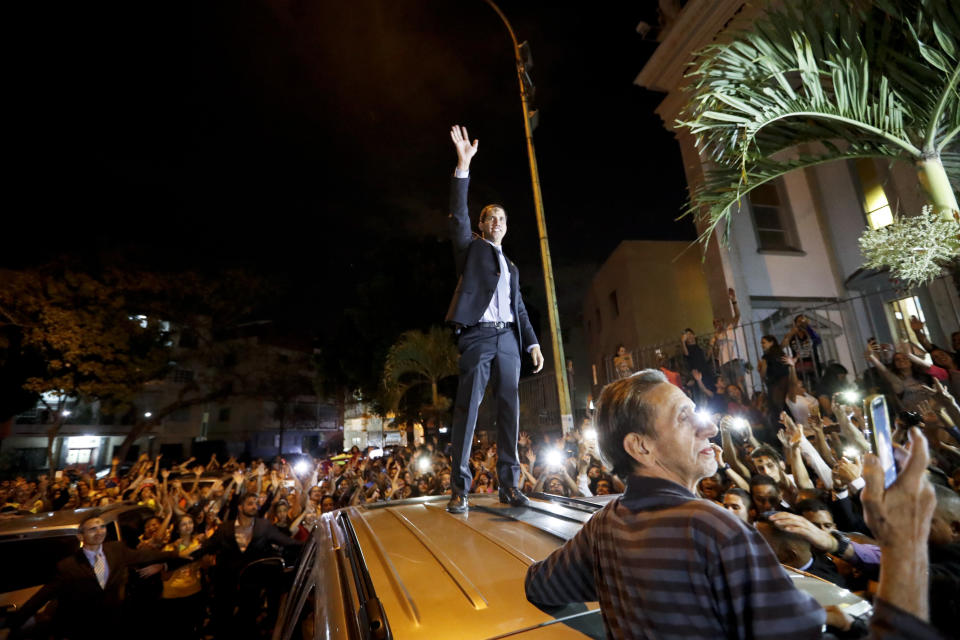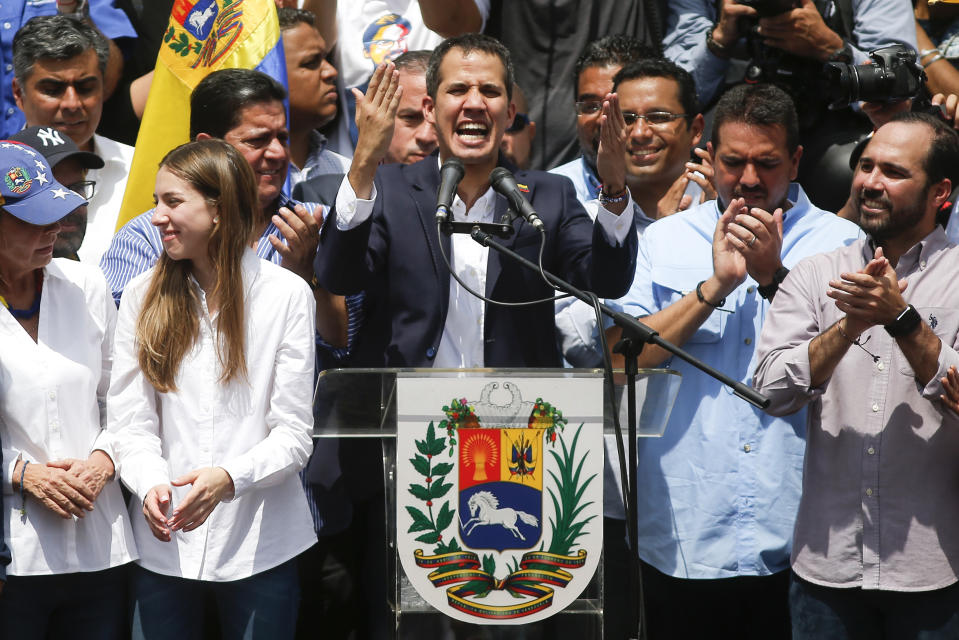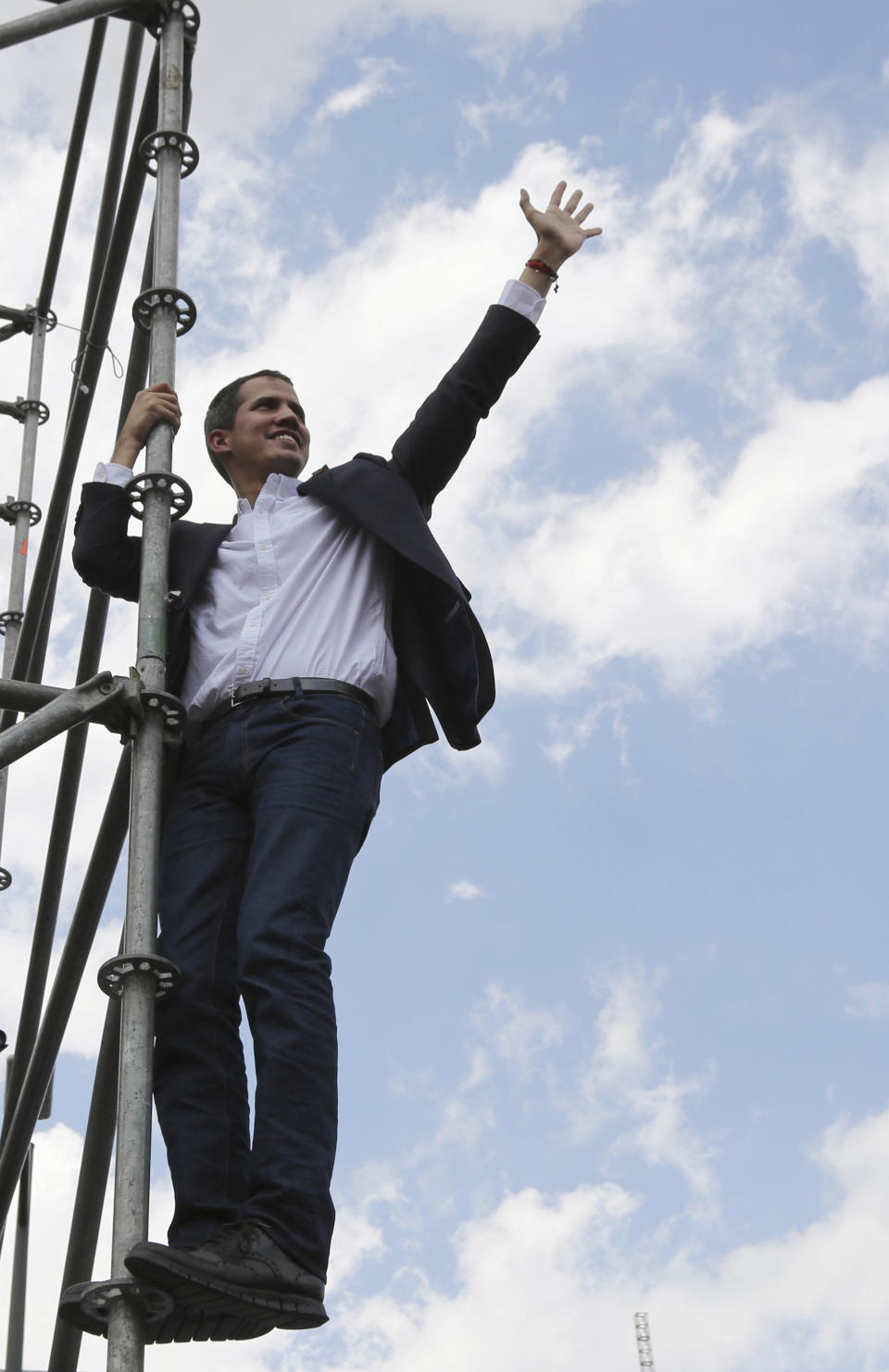The Latest: US officials: No plan to use arms in Venezuela
CARACAS, Venezuela (AP) — The Latest on the political crisis in Venezuela (all times local):
1 p.m.
Trump administration officials say there are no U.S. plans to intervene militarily in the crisis in Venezuela. That's despite the fact that President Donald Trump and others have repeatedly said all options on are on the table to support the ouster of President Nicolas Maduro.
The special envoy for Venezuela Elliott Abrams and director of the U.S. Agency for International Development Mark Green told Congress that the administration is promoting a peaceful political transition in Venezuela. Both said their instructions were to work only to that end.
Abrams said the administration was wholly focused on exerting diplomatic and economic pressure on Maduro through sanctions. He said more sanctions would soon be announced and foreign banks may be targeted if they are found to be assisting Maduro in hiding state assets.
Abrams and Green testified Thursday before the Senate Foreign Relations Committee.
The U.S. is among more than 50 governments to recognize Juan Guaido as interim president, arguing that Maduro's re-election last year was illegitimate.
___
8:35 a.m.
The European Union said it was disappointed that Venezuela's government has ordered the German ambassador to leave the country after he expressed support for opposition leader Juan Guaido.
European Commission spokeswoman Maja Kocijancic said Thursday that the EU wants to continue its dialogue with all political forces in the country.
"Despite the tense and complex political context, the EU has been keen to maintain lines of communication with all key parties including the government," Kocijancic said. "In that respect, the EU hopes that this decision can be reconsidered."
The German ambassador and other diplomats greeted Guaido when he returned to Venezuela on Monday — a gesture the Venezuelan government condemned.
___
8 a.m.
Germany's foreign minister says the presence of foreign diplomats at the Caracas airport on Monday helped prevent the arrest of Venezuelan opposition leader Juan Guaido.
Heiko Maas said Thursday he expressly asked Germany's ambassador to Venezuela, Daniel Kriener, to join other envoys at the airport.
He told reporters in Berlin on that "there was information that he (Guaido) was meant to be arrested there, and I think the presence of various ambassadors contributed to helping prevent this arrest."
On Wednesday, the government of Venezuelan President Nicolas Maduro announced it was giving Kriener 48 hours to leave the country, a move seen as a response to Germany's support for Guaido.



